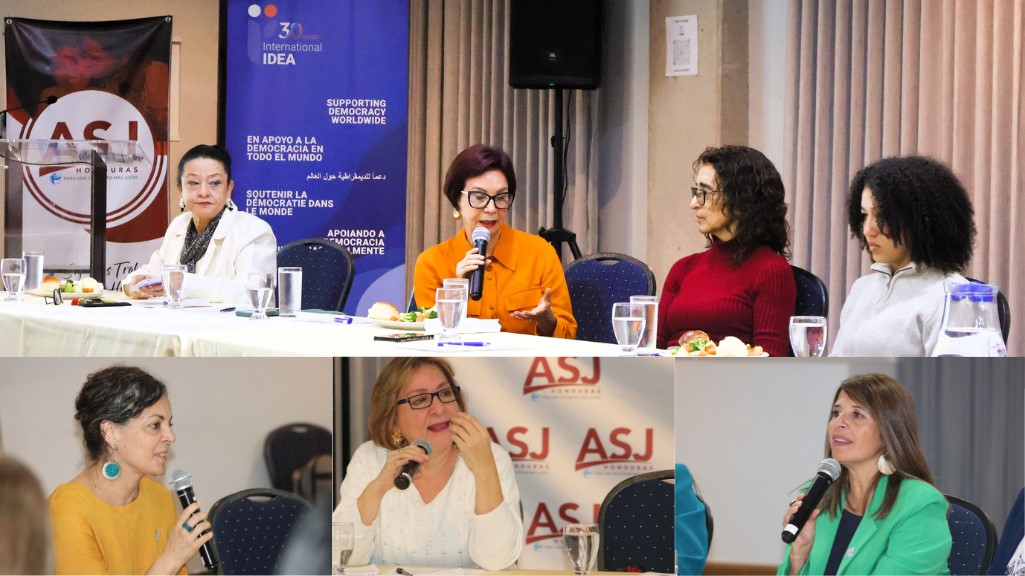As an intergovernmental institution, the Association of Southeast Asian Nations (ASEAN) is in the process of a long evolution that may transform it into a regional association with a significant role in post-conflict reconstruction and rebuilding, a departure from its usual role of low-key engagement in the internal affairs of its members.
Búsqueda
Region
Country
Type
Ukraine’s local elections in October 2015 were yet another critical democratic milestone for the country following the 2013 pro-democracy uprising that ousted President Viktor Yanukovych replacing him with a pro-western coalition of parties.
The landmark adoption of the Sustainable Development Goals (SDGs) in September 2015 attests to the increasing global consensus that achieving gender equality and empowering all women and girls (SDG 5) is intrinsic to the holistic development of participatory and representative democracy of each country and the world at large.
The landmark adoption of the Sustainable Development Goals (SDGs) in September 2015 attests to the increasing global consensus that achieving gender equality and empowering all women and girls (SDG 5) is intrinsic to the holistic development of participatory and representative democracy of each country and the world at large.
“We need a change in our political culture and tradition if we want to attract more women candidates to run for elections,” Democratic Party MP Shuhei Kishimoto said recently.
One of the key issues on which there has emerged a broad consensus in contemporary African politics is the need for the fuller participation of women in public affairs and their greater representation in public institutions.
International IDEA is pleased to join the rest of the world in celebrating International Women's Day 2016.
In 1954 Doria Shafik, an Egyptian woman and feminist, staged a hunger strike to protest the creation of a new constitutional committee with no women in it. Eight days later she ended her strike after having received a written statement from then-president Mohamed Naguib saying that he committed to a constitution that respected the rights of women.
Considerable progress has been made in women’s political participation in recent years. It seems that many countries in the world are seeking gender parity in politics but the question is how close we are? Below is an approximation of the present political participation of women in the different countries of Latin America. It is the basis for a reflection about the next steps to be followed for female representation to increase and for women to reach the much-desired equality.
Considerable progress has been made in women’s political participation in recent years. It seems that many countries in the world are seeking gender parity in politics but the question is how close we are? Below is an approximation of the present political participation of women in the different countries of Latin America. It is the basis for a reflection about the next steps to be followed for female representation to increase and for women to reach the much-desired equality.
La participación política de las mujeres ha demostrado grandes avances en los últimos años. Al parecer los diversos países del mundo se encuentran un búsqueda de la paridad de género en la política, pero ¿qué tan cerca estamos de ella?
La participación política de las mujeres ha demostrado grandes avances en los últimos años. Al parecer los diversos países del mundo se encuentran un búsqueda de la paridad de género en la política, pero ¿qué tan cerca estamos de ella?
Evo Morales suffered a historical defeat in the referendum held last February. He was seeking the support of the citizens for passing a constitutional reform that would have enabled him to run again in 2019. Had he succeeded he would have remained in office until 2025. Preliminary results released by the Supreme Electoral Tribunal suggest the ‘No’ vote won by a narrow margin (51.30 per cent to 48.70 per cent).
The 8 November elections in Myanmar were historical for its higher levels of credibility and transparency. The Union Election Commission (UEC) overcame large technical and logistical challenges in the run-up to election day. Voter lists had to be verified and updated, ballots printed, secured and distributed, observers accredited, voters educated, and candidates registered. In addition parts of the country was suffering from severe floods which further complicated the situation.
On February 29, the book The Cost of Democracy: Essays on Political Finance in Latin America was launched at the Inter-American Dialogue in Washington DC as part of an event on regulating campaign finance in the Americas.
Prime Minister Manasseh Sogavare initiated a process of studying the potential options for a better electoral system in early 2015. The cabinet is currently deciding which options to bring forward at the planned public consultations over the next few months. The goal to have a new system in place for the 2018 elections.
El financiamiento de campañas es un tema clave para la calidad de la democracia.
El financiamiento de campañas es un tema clave para la calidad de la democracia.
Campaign finance is a key issue for the quality of democracy. As we noted in a recently-published book, it is important because of the inescapable fact that while democracy has no price, it does have an operating cost. The use of economic resources is an essential element for democratic competition.
Campaign finance is a key issue for the quality of democracy. As we noted in a recently-published book, it is important because of the inescapable fact that while democracy has no price, it does have an operating cost. The use of economic resources is an essential element for democratic competition.

![Plataforma de Acción Colectiva Shinanya ainbobo - Mujeres fortalecidas. Foro Regional 8]M: por la democracia, una ciudadana segura, libre y sin violencia. Créditos de la imagen: Bari Wesna](https://www.idea.int/sites/default/files/2025-03/Shinanya%20Ainbobo.jpg)